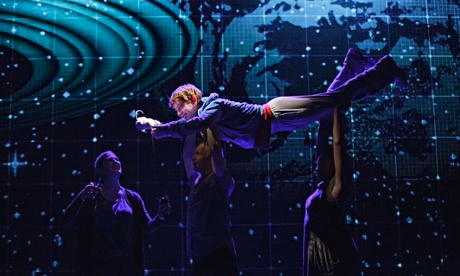
I wish I could say that it was an easy task to come up with my top ten book characters with a disability. It wasn’t. It isn’t that I don’t read a lot. I do. There just are not enough books with unforgettable characters with a disability – because they haven’t been written. Yet.
I remember a few books from my own childhood. However, the more memorable characters in classics tended to have a disability that was cured in some way during the story, as if disability was a “burden” rather than a fact of life.
In my internet roaming, I also uncovered a few more modern, mostly science fiction/dystopian books, which include teens with disability. Though I haven’t read any, I believe they tend to be more along the lines of teens with a disability that also make them super heroes; again, not reflecting real life, but at least more positive.
In picture books, I’m happy to see more children with disabilities in illustrations. I sure would like to see more books that include kids and teens in substantial roles, rather than supporting roles for the sake of token inclusion, though.
I suppose I want more diverse characters – those that seem to jump off the page because they are so interesting, and who happen to have a disability. I want there to be characters of all abilities, so that kids growing up today are surrounded by the notion that disability is just part of the fabric of normal life, which is exactly what it should be.
1.Deenie, in Deenie by Judy Blume
Deenie is one of many Judy Blume characters who reassured me that I was somewhat normal as a young teenager. Newly diagnosed with scoliosis, her disability certainly had an impact on her life, but it wasn’t all of her life. I didn’t have to share her disability to relate to her. She was struggling to find out who she was, just like me.
2. August, in Wonder by R.J. Palacio
I love how August is so typical of 10-year-old boys, despite having a rare genetic condition that causes his face to be shockingly disfigured. Palacio does a wonderful job of making the reader think less and less about August’s face as the story of his first year attending school progresses, in the same way his peers come to see all of August and not just his face.
3. Lauretta, in Zoom by Robert Munsch
Robert Munsch’s picture books are almost always full of zany characters, and Lauretta is no exception. When she goes shopping for a new wheelchair she doesn’t want the one with five speeds, or the one with 10 speeds, she wants the one with 92 speeds. Who wouldn’t love her?
4. Jacob, in Dad and Me in the Morning by Patricia Lakin
This is a lovely, watercolour picture book about a boy and his father. It is easy to deduce, from the adaptations to his alarm clock and the different ways he and his father communicate, that Jacob has a hearing impairment, but there is no need to expressly tell the reader this fact. Jacob’s warm relationship with his father would be appealing to all young children.
5. “Chief” Bromden, in One Flew over the Cuckoo’s Nest by Ken Kesey
It is never clear whether Bromden is actually deaf and mute (the now non-politically correct terms used in the book), or simply a victim of institutionalisation. Whichever the case, I have always rooted for the quiet survivor. Although it may seem a pretty unlikely story today, not so long ago many thousands of people with disabilities lived their entire lives in hospitals like this.
6. Agba in King of the Wind by Marguerite Henry
I was horse-story crazy as a kid, and this was one of my favourites. However, I’d forgotten that Agba, a valued stable boy in the story, was not able to talk. Written from the perspective of a horse, it just wasn’t that important. His love and dedication to “his” horse was the pivotal part of the story.
7. Jessica Casey, in Jessica Casey and Other Works by Away with Words
This is a different choice, but one I have to include because I love Jessica Casey so much! The figment of the collaborative imagination of a group of young writers with intellectual disabilities, Jessica, with her long purple nails and wild ideas, makes me laugh every time I read her antics. She is a wonderful character, and both Jessica’s stories and the poems in the collection would appeal to a teen audience.
8. Christopher, in The Curious Incident of the Dog in the Night-time by Mark Haddon
Christopher made it easier for people of all ages to understand the world from an autistic point of view. His bravery, despite his many fears and tendency to become overwhelmed by too much stimulus, makes him a character to cheer for.
9. Laureth, in She is not Invisible by Marcus Sedgwick
Resourceful and confident on the outside, Laureth hides her fears well. Though I read this as an adult, I think many teens would relate to this aspect of her character. She is also a good spokeswoman for how ‘normal’ life is for someone with vision impairment.
10. Augustus, in The Fault in our Stars by John Green
If this book had been around when I was a teen, I would have had a serious crush on Augustus. Quirky and sweet, of course Hazel falls madly in love with him. The fact that he has had one of his legs amputated as a result of his battle with cancer is secondary to his battle to stay alive.
Kim Hoods’ first book Finding a Voice is available from the Guardian bookshop.
Find out what else is happening during the Guardian children’s books diversity week here.

